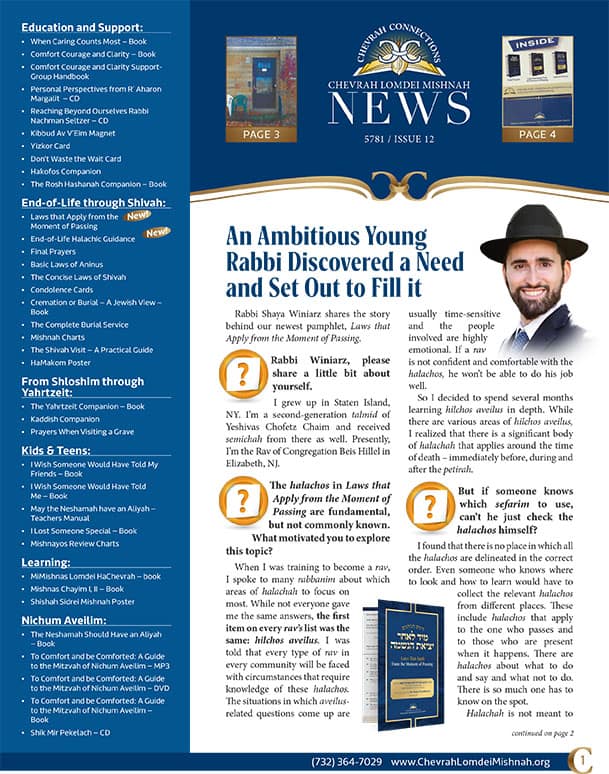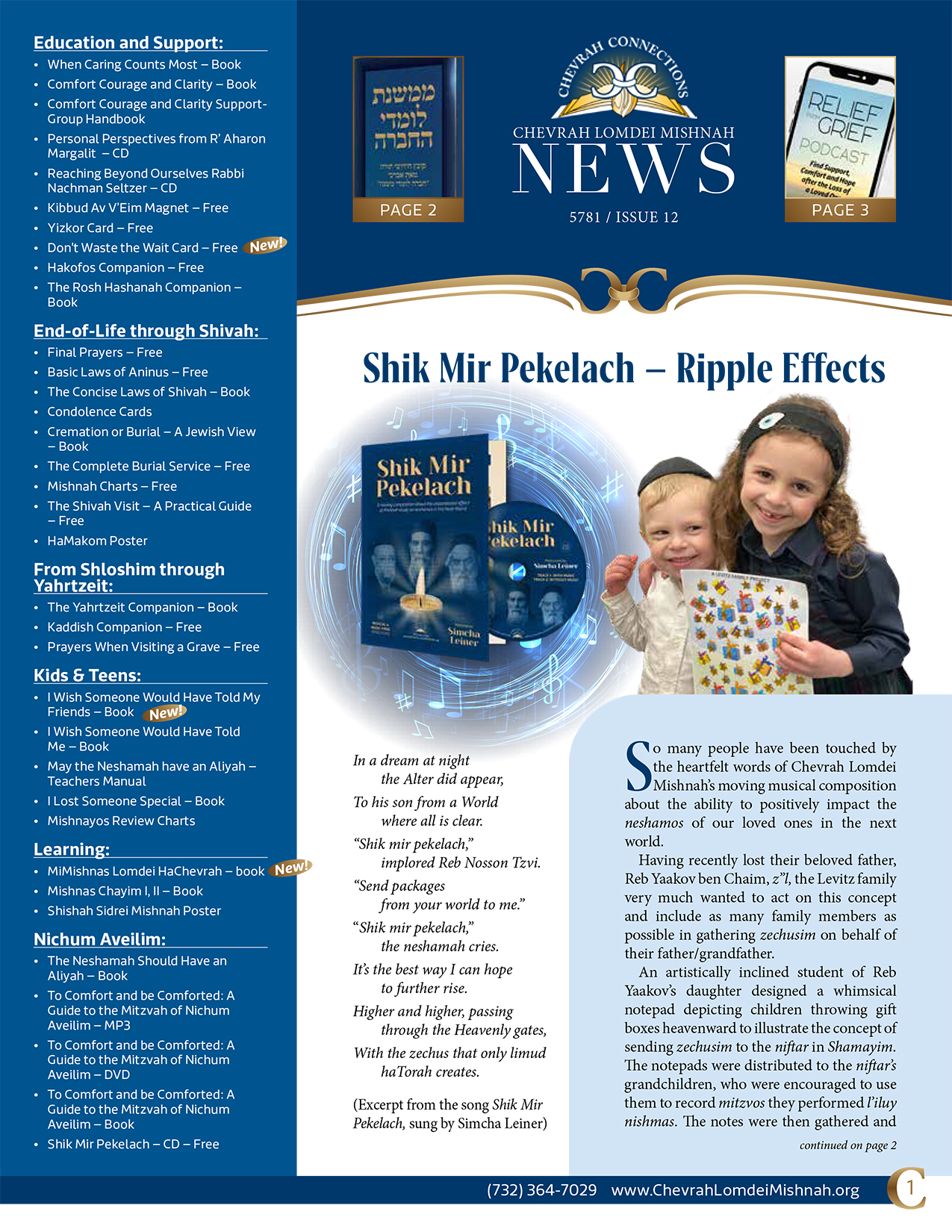Arizona Jewish News
By: Leisah Woldoff | Managing Editor of Arizona Jewish News January 2016
A new book designed to help children cope with the loss of a loved one was inspired by the work of a Scottsdale mother.
A few years ago, Robin Meyerson of Scottsdale helped edit a book entitled The Neshamah Should Have an Aliyah: What You Can Do in Memory of a Departed Loved One,” designed to be an inspirational and practical guide for anyone who desires to remember a loved one in a meaningful way. Meyerson felt it was an important concept to teach her children, so she wrote a book for them, Let’s Do a Mitzvah for Bubbie and Zaydie.
She then took her book to children’s author Bracha Goetz (the mother of Rabbi Gavriel Goetz of Yeshiva High School of Arizona and Dina Bacharach of the Phoenix Community Kollel) and, inspired by Meyerson’s book, Goetz wrote the children’s book, I Lost Someone Special: Mitzvos We Can Do in Memory of a Loved One. The book, illustrated by Chani Judowitz, was published in November 2015 by Judaica Press and Chevrah Lomdei Mishnah/The Society for Mishnah Study.
In a note to parents at the beginning of the book, the president of Chevrah Lomdei Mishnah – an organization whose goal is “to harness the power of Torah study and prayer to bring merit to the deceased and to those seeking personal salvation” – writes: “As a natural part of life, the transition from this world to the next is a topic to which children will at some point be introduced, whether through personal loss, national loss or even as part of a parshah or history lesson. With proper education, we can help our children see the journey to the next world for what it is – a transition for the neshamah, and at the same time, a transition for our relationship with that neshamah. We may be sad, but we’re not cut off, since there is so much we can do to benefit the deceased.” He encourages parents to use the book to start a dialogue with their child.
Meyerson felt it was important to get the message out to school-aged children, so she developed The Aliyas Neshamah Curriculum for grades K-12, which was recently piloted in seven schools, including the Phoenix Hebrew Academy and Yeshiva High School of Arizona. Copies of the book have been sent to about 75 Jewish day schools, Meyerson said.
The curriculum is designed to be adjusted for different ages, she said. Younger students match words to pictures, write stories or draw pictures of what they would do as a mitzvah project for someone who died. Older students discuss how they can help someone in need, such as bringing a meal to somebody who is ill. Teachers can choose how they want to implement the curriculum.
Both the book and the curriculum were reviewed by mental-health professionals, Meyerson said, to make sure they were age-appropriate.
Chai Lifeline, a national nonprofit that helps families cope with pediatric illness, loss or trauma, has endorsed the book and distributes it to the families it serves.
“I Lost Someone Special is a lucid, colorful and appropriate story for Jewish children who are coping with loss and who struggle to make sense of the process of grieving,” said Rabbi Dr. David Fox, Director of Interventions and Community Education for Project CHAI, via email. Project CHAI is Chai Lifeline’s crisis, trauma and bereavement department.
“It is a primer, of sorts, for young people who are first encountering death, and the poetic text simplifies a frightening and confusing experience with great taste and tact,” he said. “We feel that children in our communities will benefit from the tools that it provides them.”
Fox shared that Chai Lifeline, particularly Project CHAI, is impressed with the range of publications and services that Chevrah Lomdei Mishnah offers for those who encounter grief and loss in the Jewish world. “In our own work, which includes addressing the human experience of loss and bereavement and the pain and confusion that follow tragic loss, we interface with both those who suffer and struggle and those who seek to offer them support and nurturing in the aftermath of crisis and trauma. …
“I believe that this newest book will open the door for other publications to emerge, which take the taboo off of discussing the spiritual and psychosocial aspects of a child who grieves.”
– January 2016













